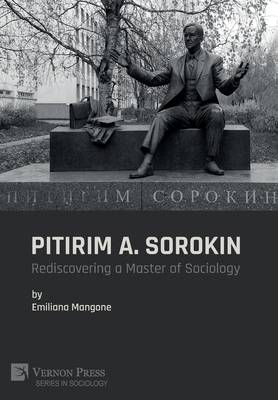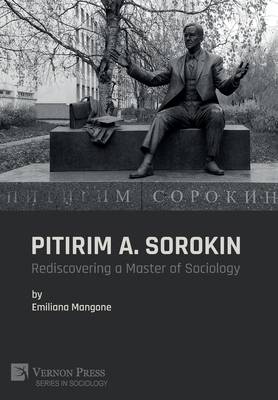
- Afhalen na 1 uur in een winkel met voorraad
- Gratis thuislevering in België vanaf € 30
- Ruim aanbod met 7 miljoen producten
- Afhalen na 1 uur in een winkel met voorraad
- Gratis thuislevering in België vanaf € 30
- Ruim aanbod met 7 miljoen producten
Omschrijving
Pitirim A. Sorokin is a controversial figure in the history of sociology, of which he remains one of the masters. Those who read Sorokin today must, however, frame the historical reality experienced by the scholar (his Russian and American experiences) because the evolution of his thought had several phases that correspond to his personal, family, and professional lives (he founded and directed the Department of Sociology at Harvard University for many years). This Russian-American sociologist argued that socio-cultural phenomena must be studied following their dynamism (in space and time) since the constituent elements (personality, society, and culture) are constantly changing and cannot be studied separately.
Reviving his thought is not a form of celebration but a moment to reflect on how some sociology classics still have their relevance and how, all too often, they are forgotten. This is why this book takes up his main conceptualizations by anchoring them to contemporary society, whose transformations are often difficult to read, and above all to highlight how the role of sociology as a science has, in part, lost sight of its ontological foundation as a service to humanity or public service.
The theoretical paths taken by Sorokin range from Social and Cultural Dynamics to Social Mobility and to many other topics, such as man and society in calamities or love and altruism - one of Sorokin's latest topics. All these topics can revive the idea of a sociology that holds together the micro, meso, and macro dimensions and allows us to predict changes in society.
Specificaties
Betrokkenen
- Auteur(s):
- Uitgeverij:
Inhoud
- Aantal bladzijden:
- 206
- Taal:
- Engels
- Reeks:
Eigenschappen
- Productcode (EAN):
- 9781648897320
- Verschijningsdatum:
- 30/06/2023
- Uitvoering:
- Hardcover
- Formaat:
- Genaaid
- Afmetingen:
- 152 mm x 229 mm
- Gewicht:
- 430 g

Alleen bij Standaard Boekhandel
Beoordelingen
We publiceren alleen reviews die voldoen aan de voorwaarden voor reviews. Bekijk onze voorwaarden voor reviews.











